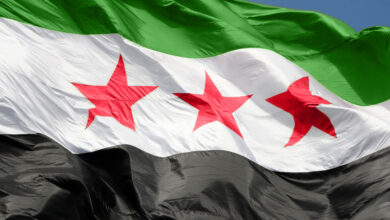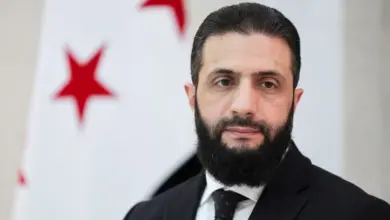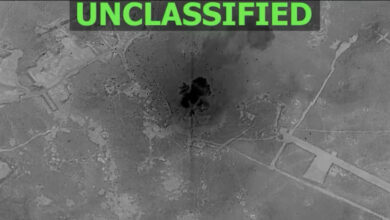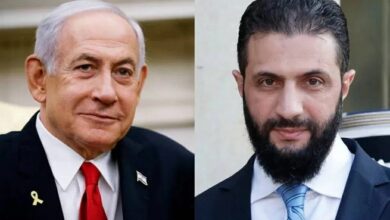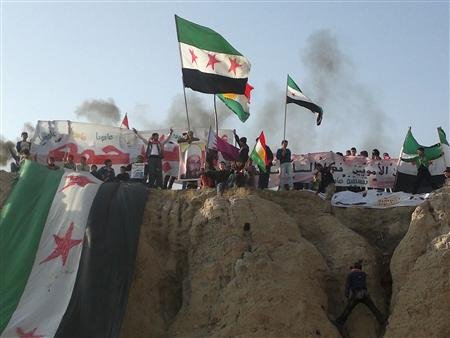
BEIRUT — Britain called on Wednesday for harsher sanctions on Syria, where an Arab monitoring mission has failed to halt bloodshed in a 10-month-old revolt against President Bashar al-Assad.
But Russia underlined divisions at the United Nations, saying it would work with China to prevent the Security Council from approving any military intervention in Syria.
Damascus may let the monitors stay on after their mandate expires on Thursday, but Assad's foes say the Arab League peace effort has failed and the UN Security Council should step in.
Arab foreign ministers, due to consider their next step at the weekend, are split over how to handle Syria, as is the UN Security Council, which has failed to adopt any position.
British Prime Minister David Cameron accused Iran and Lebanon's Shia Hezbollah movement of helping to prop up Assad, whom he described as "a wretched tyrant."
"Britain needs to lead the way in making sure we tighten the sanctions, the travel bans, the asset freezes, on Syria," Cameron told parliament in London.
European Union governments are expected on Monday to expand the list of people and Syrian companies and institutions targeted by EU sanctions, diplomats said in Brussels.
An EU diplomat said 22 extra people would be affected by asset freezes and travel bans. EU companies would also be prohibited from doing business with about eight additional companies or institutions. Current EU sanctions target 30 entities and 86 Syrians.
Russian warning
But Russian Foreign Minister Sergei Lavrov warned the West against contemplating any kind of foreign intervention to end Assad's 10-month crackdown, which the United Nations says has killed more than 5,000 civilians.
"We will insist — and we have an understanding with our Chinese colleagues that this is our common position — that these fundamental points be retained in any decision that may be taken by the UN Security Council," he told a news conference.
"If somebody intends to use force … it will be on their conscience. They will not receive any authority from the Security Council," said Lavrov, who also emphasized that Moscow and Beijing oppose any sanctions against Syria.
Russia joined China in October to veto a Western-backed resolution against Assad's government, saying the domestic opposition shared blame for the violence and that it would have opened the door for military action like NATO's Libya operation.
Moscow submitted its own draft resolution last month and proposed a new version this week.
Syria is a leading buyer of Russian arms, and a Russian-operated ship carrying what a Cypriot official said was bullets arrived in Syria last week from St. Petersburg after being held up in Cyprus.
Washington said it had raised concerns about the ship with Russia, but Lavrov refused to give any explanation. "We don't consider it necessary to explain ourselves or justify ourselves, because we are not violating any international agreements or any Security Council resolutions," he said in Moscow.
Sudanese defense
Hundreds of killings on both sides of the Syrian violence have been reported since the Arab League sent observers last month to see whether Damascus was respecting a peace plan. Critics say the observers have only provided Assad with diplomatic cover and more time to crush his opponents.
However, Sudan defended the mission which is led by one of its generals. "Day by day, they are achieving more and more," Foreign Minister Ali Ahmed Karti told Reuters.
"They began with a limited number of monitors, and gradually they began to expand throughout the areas where there are some problems, and they are doing fine," he said.
The appointment of Sudanese General Mohamed al-Dabi to lead the team alarmed rights activists, who say Khartoum committed atrocities in Sudan's Darfur region on the general's watch.
Strangled body
The opposition Syrian Observatory for Human Rights said security forces killed a civilian in a village in the northwestern province of Idlib on Wednesday and the body of a youth detained nearly two weeks ago turned up in Homs.
It said a soldier had been killed and five wounded in clashes between troops and army deserters in the Idlib village of Khaf Takharim. Three rebel soldiers were also wounded.
Syria's state news agency SANA said the strangled body of a veterinarian doctor was found in Homs bearing marks of torture four days after he was kidnapped by an "armed terrorist group."
The United Nations said on 13 December that Assad's security forces had killed more than 5,000 people since the unrest erupted in mid-March. Nine days later, the government said "armed terrorist groups" had killed 2,000 security personnel.
Syria's Muslim Brotherhood said Iran, an ally of Assad, had contacted it to try to mediate a political solution to the uprising but the effort had been rebuffed.
A senior Muslim Brotherhood member, Melhem al-Droubi, told Reuters the group had seen no details of the Iranian offer made on 20 December and it would not deal with Tehran unless it revoked its support for Assad.
"They [Iranian officials] asked about the possibility of the Brotherhood visiting Tehran, or Iran sending mediators to meet our leadership," said Droubi. "We didn't hear details about the offer and we didn't open an opportunity for them to discuss it."
The Arab peace plan required Syria to halt the bloodshed, withdraw troops from cities, free detainees, provide access for the monitors and the media and open talks with the opposition.
Qatar has proposed sending in Arab troops, an idea rejected by Syria and one likely to be resisted by its Arab allies.
A tenuous truce was holding on Wednesday in Zabadani, near the Lebanese border, where troops had been fighting anti-Assad rebels, residents said. But heavy machine gun fire and explosions rocked the troubled city of Homs, an opposition group said.
"As of now there is no shelling and no gunfire. It is quiet. But the army is still surrounding the area," said one Zabadani resident who gave her name as Rita.
Syrian forces backed by tanks attacked the hill resort on Friday in the biggest military offensive against insurgents since the Arab monitors began work on 26 December.

